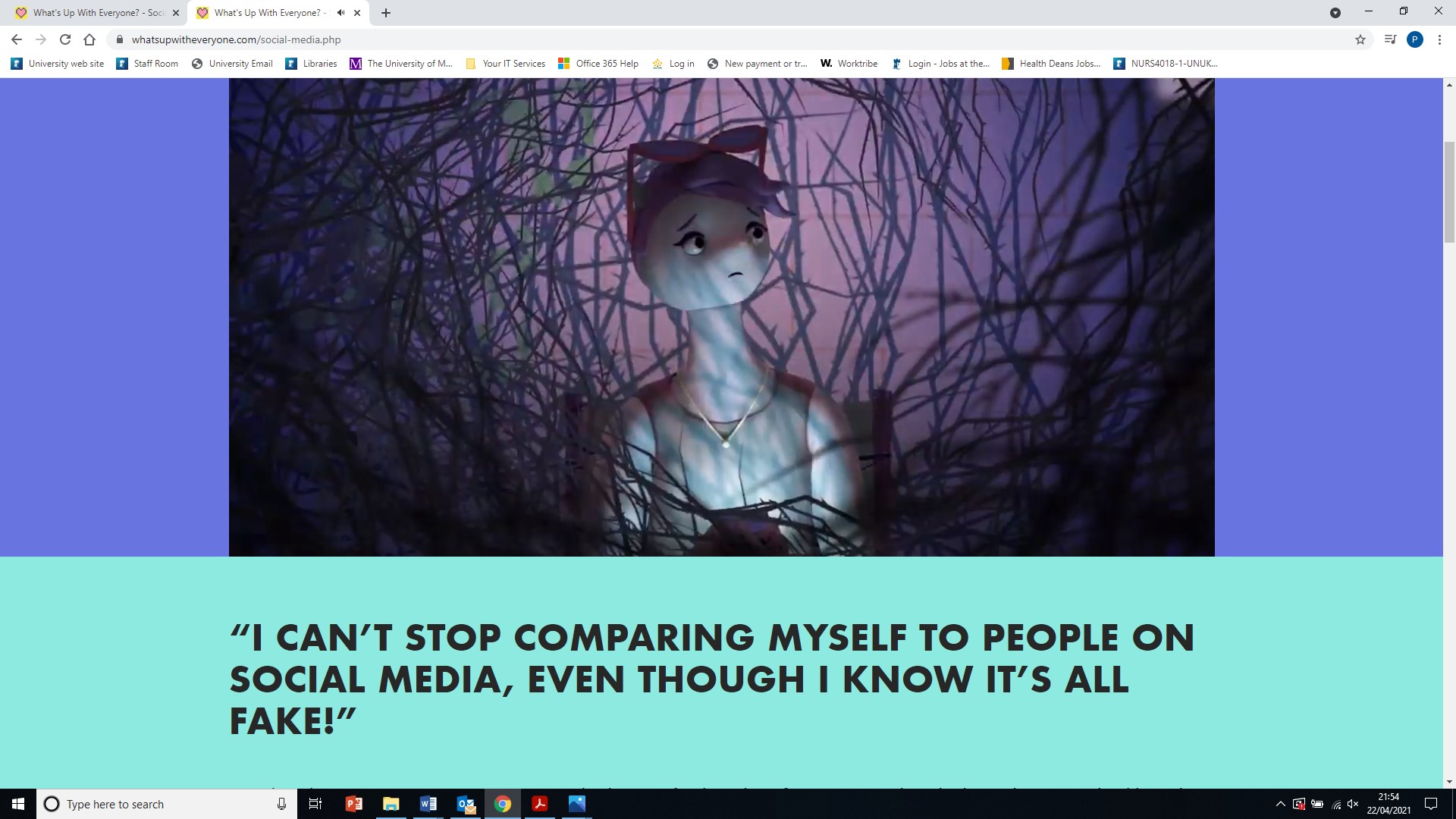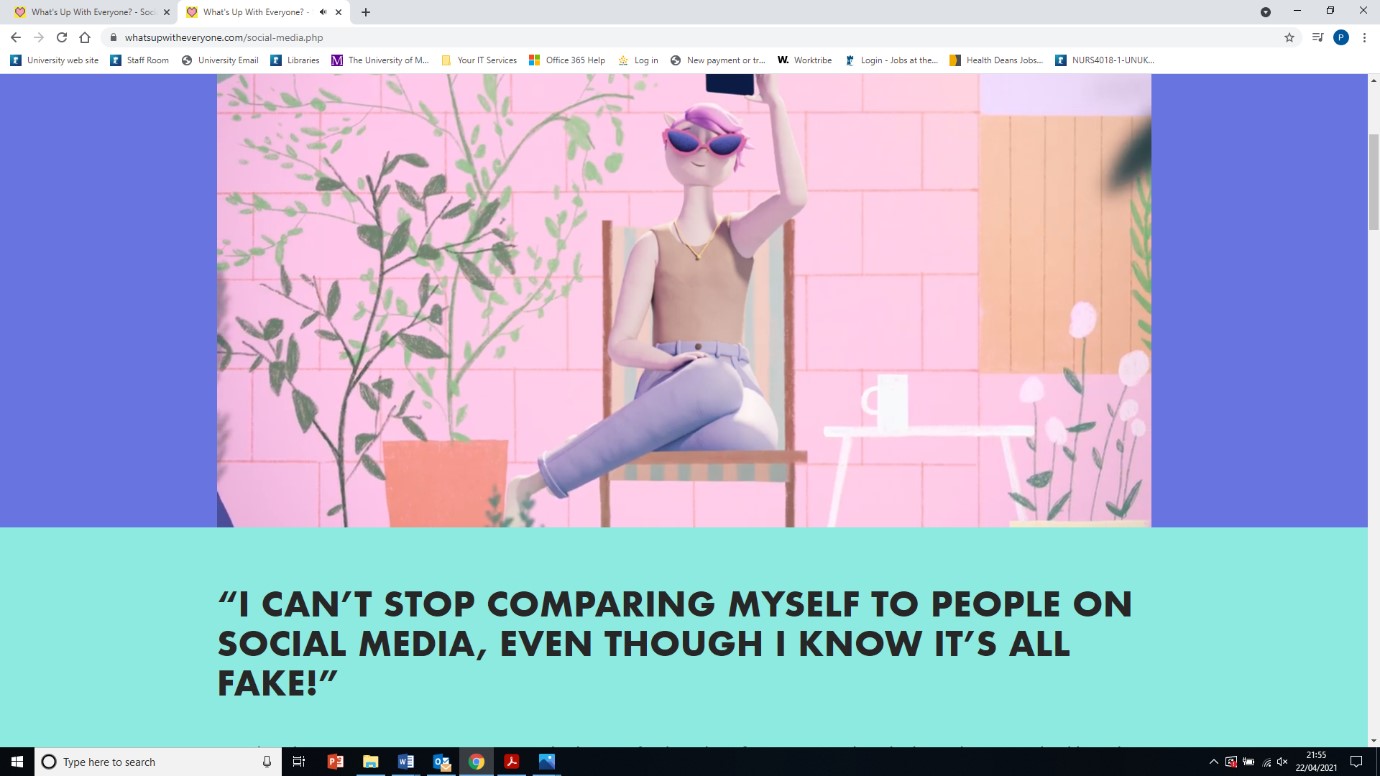Wednesday, 12 May 2021
To mark Mental Health Awareness Week, Professor Paul Crawford from the Institute of Mental Health talks about how we can emerge from lockdown.
The recent ONS report (ONS, 2021) has shown an increase in depression, particularly for our young people, during the most recent, wintry UK lockdown. This is hardly surprising given the earlier warning signs (Mind, 2020; NHS Digital, 2020, ONS, 2020; Public Health England, 2020) and when you consider the research that highlights the damaging impact of prolonged confinement and isolation—that is, the increased anxiety, depression and irritability we understand as cabin fever (Crawford & Crawford, 2021).
With Mental Health Awareness Week focusing on the benefits of nature for our mental health and wellbeing, it is timely to mitigate the psychological onslaught of prolonged confinement and isolation indoors. It is time to smell the flowers, hug the trees, and be mindful of all that the natural world provides.
 Professor Paul Crawford
Professor Paul Crawford
This recent lockdown in the UK has hit young people particularly hard. It coincided with winter (the worst season to experience cabin fever)—a time when the weather blocks life outdoors and the shorter days and darker nights add to the encircling gloom. Young people could not escape so easily into the garden or parks with family and friends. Stuck in their bubbles, the serious boredom at the heart of cabin fever took hold, and, as they waited for better news along with the rest of us, the future may have looked particularly grim. With a lot of disruption to schooling, university life or starting training or work, our young people’s sense of a bright future has been placed under the hammer.
To help with this, our mental health campaign with Aardman (Wallace & Gromit, Shaun the Sheep), funded by the Arts and Humanities Research Council, engaged with young people to share their stories through short animated films about five of life’s challenges that they identified as important. These concerned loneliness & isolation, perfectionism, competitiveness, independence and social media. The films and further information are available on the platform www.whatsupwitheveryone.com.
One of the films, on the dangers of comparing each other on social media, sees the character Alex unhappy at the popularity of Daisy with her thousands of followers. It is set in a natural garden scene where Alex’s negative thinking shows as black spiky brambles that drive out the greenery.
 What's up with everyone?
What's up with everyone?
Alex adjusts her thinking to like herself more and appreciate her ‘lovely garden’. As she does so, the dark brambles fall back and sunlight and greenery return. The film conjures up that link between the impact of negative thoughts and unhelpful comparisons. It also evokes how natural greenery and light can combine to deliver a ‘sunny’ disposition.
 Social media and mental health
Social media and mental health
Now, as we begin to leave our cabins again, blooming nature can begin to model, soothe and inspire recovery. Our young people have a chance to push back the four walls of lockdown and allow their minds to be filled with the colours and vibrancy of nature once again, meeting up with friends, getting active, entertaining opportunities rather than seeing limitations.
Professor Paul Crawford is Director of the Centre for Social Futures at The Institute of Mental Health, The University of Nottingham. He is Project Lead and Principal Investigator for the campaign What’s Up With Everyone? (Grant number AH/T003804/1).
Story credits
References
Crawford, P. & Crawford, J.O. (2021) Cabin Fever: Surviving Lockdown in the Coronavirus Pandemic. Bingley: Emerald.
Mind (2020) The Mental Health Emergency: How has the Coronavirus Pandemic Impacted Our Mental Health? London: Mind. Accessed on 14/02/2021: https://www.mind.org.uk/media-a/5929/the-mental-health-emergency_a4_final.pdf
NHS Digital (2020) Mental Health of Children and Young People in England, 2020: Wave 1 Follow Up to the 2017 Survey. Accessed on 14/02/2021: https://digital.nhs.uk/data-and-information/publications/statistical/mental-health-of-children-and-young-people-in-england/2020-wave-1-follow-up
ONS (2020) Coronavirus and Higher Education Students: England, 202 November to 25 November. Accessed on 14/02/2021: https://www.ons.gov.uk/peoplepopulationandcommunity/healthandsocialcare/healthandwellbeing/bulletins/coronavirusandhighereducationstudents/england20novemberto25november2020
ONS (2021) Coronavirus and depression in adults, Great Britain: January to March 2021 – https://www.ons.gov.uk/peoplepopulationandcommunity/wellbeing/articles/coronavirusanddepressioninadultsgreatbritain/januarytomarch2021
Public Health England (2020) Research and analysis 7. Children and young people. Updated 17 December 2020. Accessed on 14/02/2021: https://www.gov.uk/government/publications/covid-19-mental-health-and-wellbeing-surveillance-report/7-children-and-young-people
Notes to editors:
About the University of Nottingham
Ranked 97 in the world and 17th in the UK by the QS World University Rankings, the University of Nottingham is a founding member of Russell Group of research-intensive universities. Studying at the University of Nottingham is a life-changing experience, and we pride ourselves on unlocking the potential of our students. We have a pioneering spirit, expressed in the vision of our founder Sir Jesse Boot, which has seen us lead the way in establishing campuses in China and Malaysia - part of a globally connected network of education, research and industrial engagement.
Nottingham was crowned Sports University of the Year by The Times and Sunday Times Good University Guide 2024 – the third time it has been given the honour since 2018 – and by the Daily Mail University Guide 2024.
The university is among the best universities in the UK for the strength of our research, positioned seventh for research power in the UK according to REF 2021. The birthplace of discoveries such as MRI and ibuprofen, our innovations transform lives and tackle global problems such as sustainable food supplies, ending modern slavery, developing greener transport, and reducing reliance on fossil fuels.
The university is a major employer and industry partner - locally and globally - and our graduates are the third most targeted by the UK's top employers, according to The Graduate Market in 2024 report by High Fliers Research. Alongside Nottingham Trent University, we lead the Universities for Nottingham initiative, a pioneering collaboration between the city’s two world-class institutions to improve levels of prosperity, opportunity, sustainability, health and wellbeing for residents in the city and region we are proud to call home. More news…